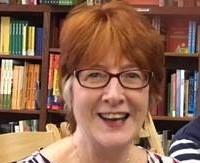Headlines
October Science Cafe Highlights Gravitational Wave Astronomy
Visiting post-doctoral fellow’s collaborative studies may hold keys to unlocking origins of universe
OXFORD, Miss. – An emerging branch of astronomy that uses gravitational waves rather than light to observe distant objects is the focus of this month’s installment of a monthly public science forum organized by the University of Mississippi Department of Physics and Astronomy.
The fall semester’s third meeting of the Oxford Science Cafe is set for 6 p.m. Tuesday (Oct. 15) at Lusa Pastry Cafe, 2305 West Jackson Ave. Nairwita Mazumder, a post-doctoral research associate at the Indian Institute of Science Education and Research at Thiruvananthapuram and visiting post-doctoral fellow in the UM physics department, will discuss “Gravitational Wave Astronomy: The New Observational Window to the Universe.” The program is free and open to the public.
“Unlike light waves, which are electromagnetic oscillations, gravitational waves are ripples of the space-time itself propagating at the speed of light,” Mazumder said. “Gravitational waves carry information about their variety of sources, such as large-scale cosmological process like inflation in the early universe, super-massive black holes to binary neutron stars and supernova.”
Mazumder’s 30-minute presentation will discuss what scientists expect to observe by using the next-generation, ground-based detector networks, and how those observations can enhance their understanding of the universe.
“The era of advanced, or second-generation, earth-based gravitational wave detectors is set to begin in a couple of years,” Mazumder said. “The coming years will witness the birth of gravitational astronomy, which can be considered as a new observational window.”
Mazumder earned her bachelor’s, master’s and doctoral degrees from Jadavpur University in India. A member of the Laser Interferometer Gravitational-Wave Observatory, or LIGO, scientific collaboration since 2012, she is also a member of the IndIGO consortium, a lifetime member of the Calcutta Mathematical Society and Indian Association for General Relativity and Gravitation. Mazumder has 21 publications in peer-reviewed journals.
UM has been a member of the LIGO collaboration since 2007.
“We’re very pleased to have Dr. Mazumder here,” said Marco Cavaglia, associate professor of physics and astronomy. “These are very exciting times for LIGO and our quest to be the first to detect gravitational waves.”
For more information about Oxford Science Cafe programs, go to http://www.phy.olemiss.edu/oxfordsciencecafe.
—Edwin Smith, Ole Miss News Desk

















